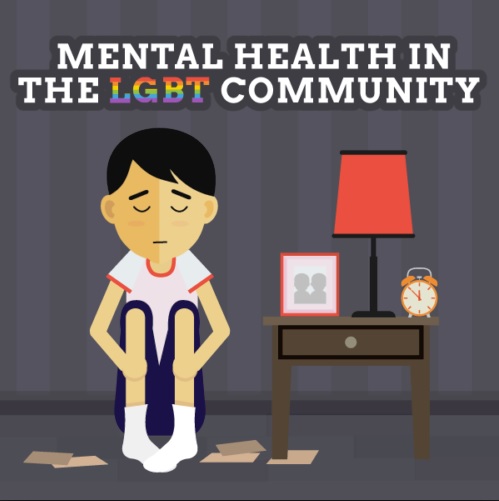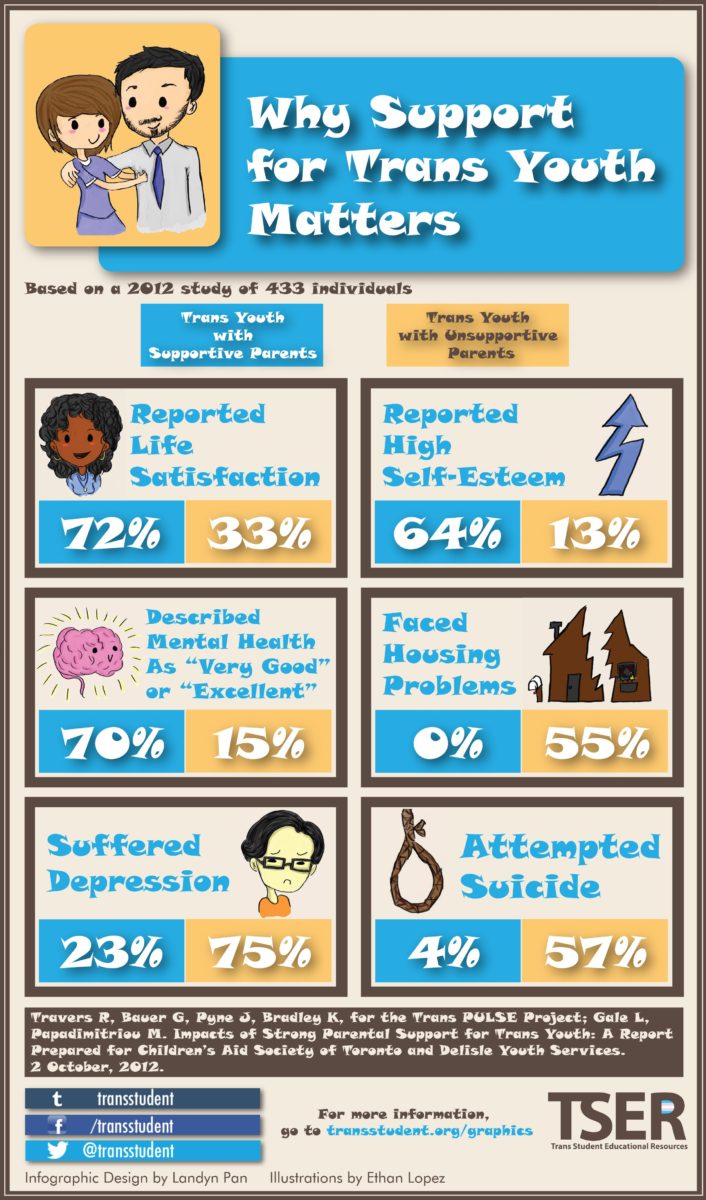Ashera is a Marriage and Family Therapist with an extensive background in sexual health education. You can ask her stuff anonymously and she won’t get weirded out. Seriously, try her. Send your questioning queries to [email protected].
Dear Smashera,
My teenage son has begun questioning his sexual orientation and gender identity and has now become very depressed. I tell him that I love and support him no matter what, but I don’t know what else I can do. Any advice would be appreciated.
Sincerely,
Concerned Mom
Dear Concerned Mom,
I am glad to hear that you are supportive of what your child is experiencing. Being a teenager is already tough, but for a person to also be coming to the realization that they may not be straight and/or cisgender adds a whole new layer of intensity to the process.
For readers that may not have a background in gender studies, sexual orientation and gender identity are very different. To be brief, gender identity is who you are, be it man, woman, nonbinary, etc. Subconsciously, we all have a gender identity. Cisgender people agree with the gender that they were assigned based on their genitals at birth. Transgender people do not feel at home with the gender identity they were assigned and experience gender dysphoria as a result. I wrote a big ol’ primer on gender and gender identity here.

If gender identity is who we are, sexual orientation is who we want to go to bed with. Both gender identity and sexual orientation can be fluid and change over the course of a person’s lifetime. Who we are and what turns us on one day may not stay the same forever and that’s OK!
Back to business!
Concerned Mom, be aware, that your child may request pronoun changes at some point. Often a person that is questioning their identity will shift to neutral pronouns (they/their) or cross gender pronouns (in this case, she/her). The linguistic shift may be frustrating and difficult for everyone involved, and slip-ups will happen. In this case, it is very important to explain that you will do your best to make the shift and that you will both need to be gentle with each other. Please, please never purposely misgender someone (your child or otherwise) out of anger or spite. There is a HUGE difference between vindictively belittling someone’s identity and in making a mistake. In the event that they change pronouns, ask what you should do in case you slip up. If you make a mistake work to do better next time.

You’re already on the right track by actively trying to support your child. Many studies have shown that lack of familial support is closely related to suicidality amongst LGBTQ folk. Since your child is depressed, it’s doubly important to be supportive of what they’re going through. It may behoove you to have frank conversations with other family members about their attitudes about sexual orientation and gender identity. DO NOT “out” your child without their permission. Coming out is a deeply personal process and should be guided by the person who is coming out. That being said, if great aunt Linda frequently goes off about “the gays” at family gatherings, it may be helpful to try and steer her away from that conversational nightmare.
A big part of supporting your child will entail “going with the flow.” Because they’re still questioning their identity, they may need to “try on” words and identities until they find one that fits right. This may mean that some days, they’ll ask you to use certain pronouns or may identify themselves as “bisexual” whereas last week they were “questioning.” Changing the words to describe themselves does not negate what they’re going through. Often, people need to find what feels right. It will be helpful for you to learn some of the jargon around the subject matter. Precision in words is precision in thought, which is why there is a growing lexicon for gender identities, sexual orientations, and pronouns. When describing something as personal as our identities and desires, it’s imperative to be specific.

Finding community resources is a great way to strengthen both their and your support systems. For your child, knowing that other people have similar identities can help take away that feeling of being completely and utterly alone. If you can find other parents of LGBTQ kids that are being supportive, they can help you process the change that is happening in your child and your family. It’s okay for you to have feelings about this process. It’s how you deal with them, particularly in front of your child, that counts the most.
Speaking of feelings and dealing with them, it’s a good idea to get you and your child therapists. Make sure your therapist is LGBTQ knowledgeable and friendly. Buffalo is home to the Center for Psychosexual Health, which offers gender dysphoria counseling. Evergreen Health Center and Gay and Lesbian Youth Services offer groups and other services. There is a wonderful, welcoming community out there for you and your child that can help you both adjust to these changes.
Importantly, because your child is depressed, it’s important to have a Really Difficult conversation about safety. Talk to them about their depression and how you can help them manage it. Develop a plan for if they start to feel suicidal. Who can they call? What can they do? Make a list of at least three people they can call and at least three things they can do to stay safe. Keep hotline and crisis numbers handy for you and for them. This can be a painful conversation to have, but it is important to have it.
Finally, it’s okay if the changes your child is going through have difficult moments. Adolescence is a trying time for everyone involved. At the end of the day, communicating your love and support and owning up to your own mistakes and shortcomings can only help but to strengthen your relationship. Remember, ALL teenagers are bound to lash out at some point, no matter their orientation or identity. They’re trying to figure out themselves and how they fit into the world all while enduring the joys of puberty. Give them and yourself a little credit and keep showing them that you love them and that you will always care, no matter who they are.
Kisses,
Smashera
Big Ups to fellow MFT, Michelle Wolf for putting a second pair of eyes on this piece. You the real MVP.